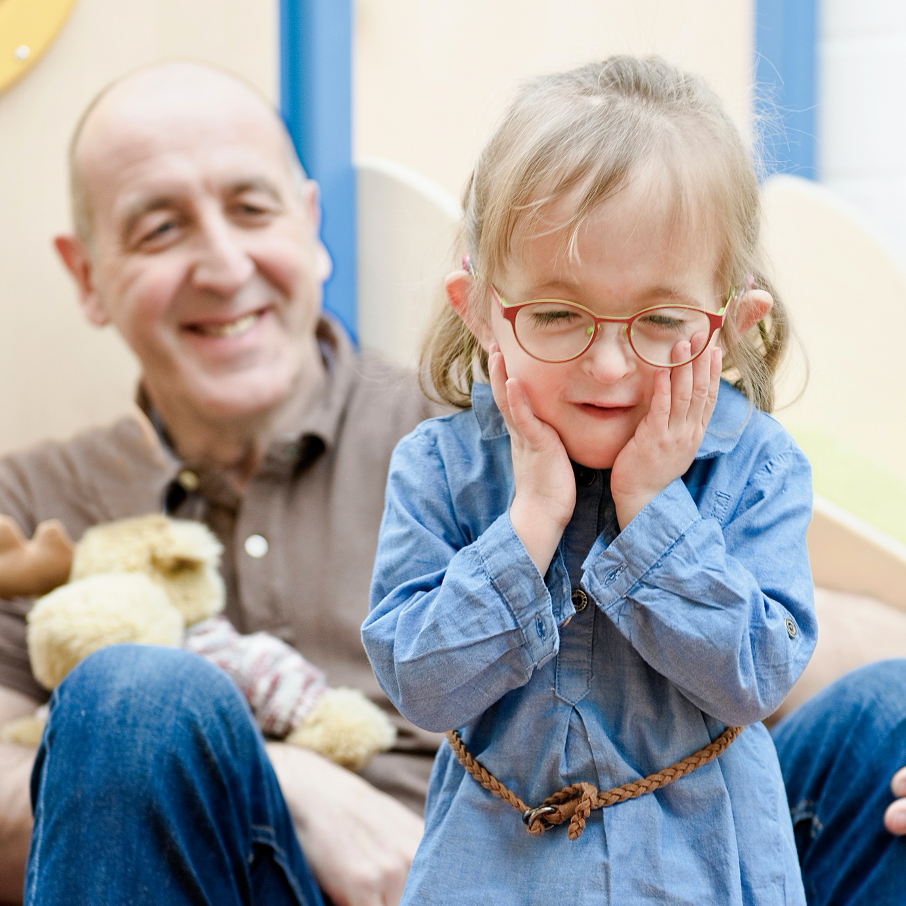21 July 2020 | Münster
Nothing is as important as your own health. Especially in times of Corona, we all have this in mind again. But what is more valuable than your own health? Our children's health. What do parents do when their world suddenly comes to a standstill when their children are seriously ill? Everything is organized around it: In the centre is that the child gets the best medical care. Often parents travel from other cities to Münster with their sick children and do not know where they should stay overnight. For such situations, the Pelikanhaus - a temporary home - is about to be built at the Clemens Hospital, offering parents uncomplicated accommodation, even for a longer time. It should become a place where they are closer to their children and can recover after a hard day in hospital. How such accommodation would look like and how it could be financed was the subject of ideas being put forward by students of the Münster School of Business (MSB) at FH Münster.

In a first step, the group conducted many interviews - with staff members of the children and youth clinic, the hospital's fundraising team and affected parents who have already used or potentially will use similar accommodation. On this basis, they developed different financing options for the operation of the residential building. These include: Monetary and in-kind donations, support from well-known sponsors or volunteer work. In the survey, they also considered how the stay could be best arranged for those affected. "This project has opened our eyes to other life stories and people," says Regina Schneider, a student on the master's course in International Marketing and Sales. Together with Noemi Nohse and Jana Pommerening, she had taken over the student leadership of the seminar. During the survey, the team also found out, for example, that the parents would like to have sports and meditation activities to recharge their batteries and give their sick child support.
"I think it is important that future graduates in business administration are also committed to social issues and that they do not only see added value for companies in increasing profits", says Katrin Uude, who led the practical project together with junior professor Dr. Kerstin Kurzhals and doctoral student Choiwai Maggie Chak from the Science-to-Business Marketing Research Centre (S2BMRC) at FH Münster. Especially in the social sector, she said, it is important to develop innovative ideas, as often not much capital is available. So, the students became creative and developed a sustainable business model for the Pelikanhaus within three months. The group took the results into account in their comprehensive recommendations for action, which they finally presented to representatives of the Pelikanhaus - but only virtually. Because of Corona, the rest of the project seminar also took place digitally.
"It was a great challenge for the team, but we managed it," says master student Regina Schneider. There were also language barriers, as the students come from three different countries and the project language - English - is the native language of none of them. "Accordingly, we also learned a lot about intercultural cooperation," adds Noemi Nohse. Jana Pommerening concludes: "The fact that the Pelikanhaus is a social project was what made it so appealing to me, because with our work and our results we were able to make a direct contribution to giving the affected families a temporary home and a piece of quality of life in an extreme crisis situation".
Sabrina Schulz from the Clemens Hospital's fundraising team was also satisfied with the result: "We are impressed by the results and the presentation of the students - especially under these special circumstances". The words of praise were joined by Dr. med. Otfried Debus, head of the Clinic for Children and Youth Medicine at the Clemens Hospital, and Dr. Martina Klein, head of the fundraising department at the Alexianer GmbH. "The results are of great value for the development of the Pelikanhaus and will be taken into account in the future course of the project", Dr. Debus emphasized.
Junior Professor Kurzhals is optimistic about further joint projects: "We are happy that the successful cooperation between FH Münster and the Alexianer GmbH will be continued." It is exactly this kind of social projects that she and her team of researchers from the specialization field of Science-to-Society - i.e. research that integrates and benefits society - would like to anchor strategically in university. "In this way, we want to further promote the so-called 'Third Mission' of our university, namely, to make knowledge, innovations and transfer available to society."
On the subject: The Clemens Hospital belongs to the health association of the Alexianer GmbH. The pelican, the eponym of the house, stands for Christian charity and is also the Alexian heraldic animal.
The Alexianer GmbH with its headquarters in Münster is a company that employs about 15,000 people. Nationwide, the Alexians are represented in nine regions: Aachen, Berlin-Hedwig, Berlin-Weißensee, Cologne/Rhein-Sieg, Krefeld, Münster, Münster-Misericordia, Potsdam and Saxony-Anhalt. The Alexian institutions are characterized by the fact that they are strong regional providers. The offer patients and clients outpatient, day-care, full-time inpatient and rehabilitative services.


